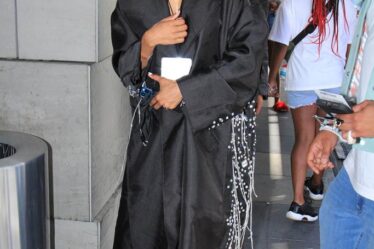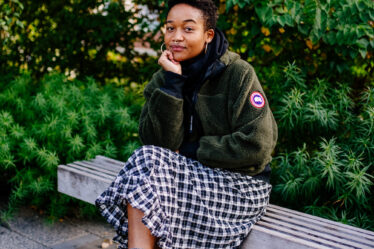
Stella McCartney’s newest launch isn’t a mushroom-leather handbag or recyclable sneaker, it’s a $200 million venture capital fund focused on climate solutions.
The designer is working with investment firm Collaborative Fund to back early-stage start-ups reimagining materials, ingredients, energy and supply chains. Fashion-focused investments include leather-alternative producers Bolt Threads and Natural Fiber Welding and kelp-yarn manufacturer AlgiKnit.
“It is all about sustainable solutions,” McCartney said in a video posted on her Instagram last weekend. The goal is to “swap out the conventional, bigger industries with these new, problem-solving sustainable companies.”
She’s not the only one to see the opportunity. In fact, even as an uncertain economic outlook prompts companies to rethink their investment strategies, sustainable fashion start-ups still appear to be in vogue.
Zara-owner Inditex made its first “clean tech” investment in July, joining a $30 million funding round for textile-to-textile recycling business Circ; French luxury giant Kering took a stake in lab-grown leather start-up VitroLabs in May, building on investments in resale site Vestiaire Collective and handbag subscription service Cocoon last year. Investment in next-generation materials more than doubled in 2021 to nearly $1 billion, according to nonprofit Material Innovation Initiative.
Fashion’s appetite for sustainability tech reflects wider cultural and political shifts. Regulators are honing in on the industry, upping pressure on brands to deliver on high-profile commitments to curb their environmental impact. Consumers are also demanding change, fuelling interest in companies that promise marketable solutions.
“Arguably, there has never been a greater need for investment in this space,” the head of H&M Group’s venture investment arm Nanna Andersen said in an email. The division was formed in 2015 to support the fast-fashion group’s long-term growth, investing in areas like retail and supply chain tech as well as sustainability solutions. Investments this year have included agriculture tech company Materra, bio-based dye business Colorifix and AlgiKnit.
The amount of capital flowing into sustainable fashion start-ups is still small compared to the size of the challenge, but interest from venture capital funds, impact investors and corporate investors is growing, sustainable fashion accelerator Fashion for Good’s managing director Katrin Ley said in an email.
There are growing tailwinds encouraging more interest in the space too, from the maturation and commercialisation of recycling technologies and leather alternatives to the sudden resuscitation of legislative support for climate action in the US in recent weeks. Increasingly, backing such ventures is seen as a way of future-proofing businesses.
But flashy innovations alone cannot solve fashion’s sustainability challenges. Focus is also needed on more unglamourous and unmarketable areas, like decarbonising the industry’s supply chain, improving efficiency and simply slowing down fashion’s consumption-driven growth engine.
For more BoF sustainability coverage, sign up now for our new Weekly Sustainability Briefing by Sarah Kent.


